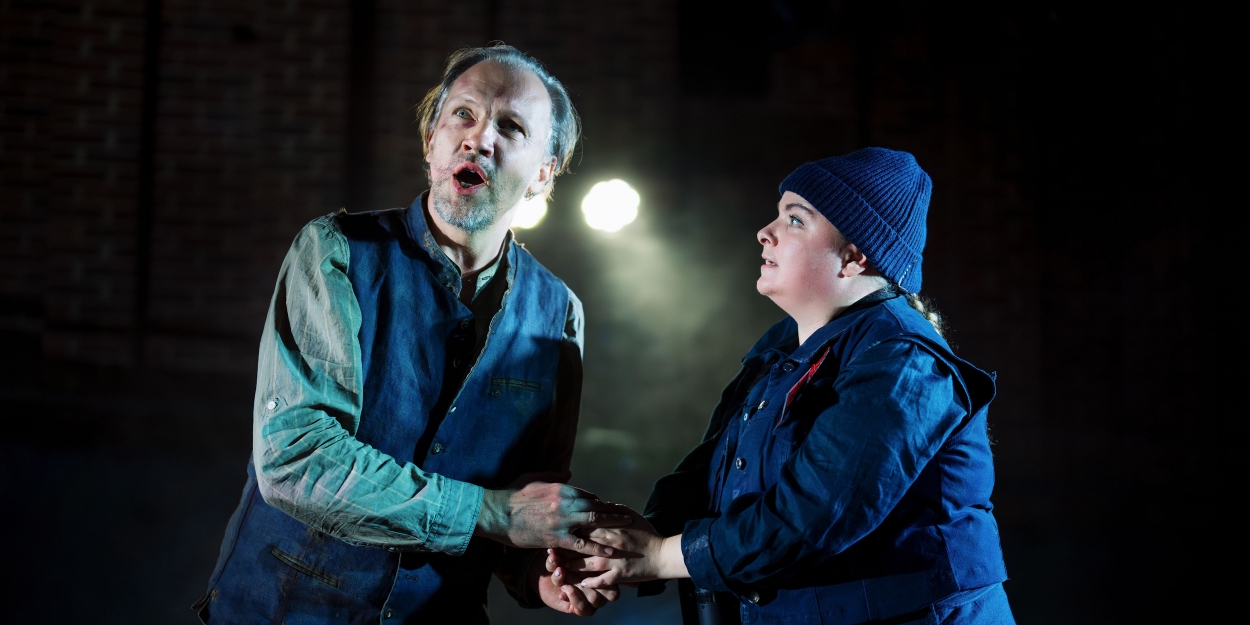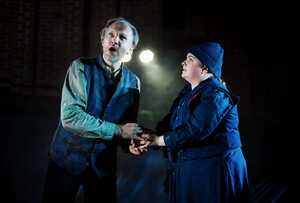Review: FLYING DUTCHMAN, Grand Junction
A mixed beast that roars when it comes to the music


![]() Featuring a reduced orchestra that nevertheless contains all necessary elements, a stellar cast, and a new English libretto, OperaUpClose’s Flying Dutchman is a mixed beast that roars when it comes to the music but is ultimately let down by issues surrounding the conception and dramaturgical realisation.
Featuring a reduced orchestra that nevertheless contains all necessary elements, a stellar cast, and a new English libretto, OperaUpClose’s Flying Dutchman is a mixed beast that roars when it comes to the music but is ultimately let down by issues surrounding the conception and dramaturgical realisation.
That’s not to say that a modern reinterpretation of a classic is flawed per se. Contemporary productions do it all the time, and even the most die-hard Wagner enthusiasts admit that his lyrics can be less than poetic at times, which leaves plenty of room for revision – especially one written by Glyn Maxwell.
The trouble is that it often feels shoehorned in. Aside from the setting at sea, there is too little overlap between the political reality of contemporary Britain regarding refugees arriving by boat and the original conception of the myth. Large parts of the production still feature the original musings on redemption and salvation, the hardships of years at sea, and a contemplation on the nature of the Mariner’s troubled existence. Of course it's all done with sincere intentions and it’s a crucial subject, but when it leads to a muddled dramatisation, it will also necessarily detract from the desired outcome of raising awareness.
Thankfully there is little to complain about when it comes to the music. Laura Bowler’s arrangement reduces the orchestra size to a mere eight people, conducted by Timothy Burke, and it works remarkably well. Naturally it doesn’t have the bombastic effect of a full Wagnerian orchestra but in the intimate setting at the Grand Junction it still maintains its power and is just as engaging. The musicians also double as the chorus, which bridges the gap between orchestra and singers.
Speaking of which, the cast is excellent. Timothy Dawkins is an initially likeable but ultimately greedy Captain Dee. Carolyn Holt doubles as Captain Dee’s lieutenant Helm and later Mari, Starligth’s ex-lover, and effectively embodies both characters. Pauls Putnins’ baritone is powerful as the Mariner: his voice carries weight from his first appearance to the last note; especially in terms of conveying the grittiness and depression of the character. But Philippa Boyle’s control of her voice steals the show: musically it is a stunning sound that dominates in its intensity. It’s a wonderful performance to listen to, all around.
Director Lucy Bradley's production is minimalist, with a large, dark cloth representing the sea; other than that there are just a few ramps and boards around. Ana Inés Jabares-Pita's costumes are loosely nautically themed in a contemporary setting, and otherwise it's straightforward. It’s all rather dark and harmless, but it also contributes little to the narrative. Everyone is dressed the same, which makes the character change between Mari and Helm difficult to realise, and generally it is sometimes difficult to understand what’s actually happening on stage without painstakingly reading along with the libretto. Prior knowledge of the opera’s story also does little to help with this given the magnitude of the changes – good thing OperaUpClose provides the audience with a synopsis before the show begins!
But these things do little to detract from what is, musically, an excellent, if highly unusual and reduced version of Wagner’s opera. With four singers who are more than up to the challenge of meeting his tough score head-on it’s encouraging to see that his operas can be staged even in an intimate setting, rendering this performance more than worthy of a visit.
OperaUpClose's Flying Dutchman is touring until 23 July
Photo Credit: Alex Brenner
Reader Reviews

Videos
